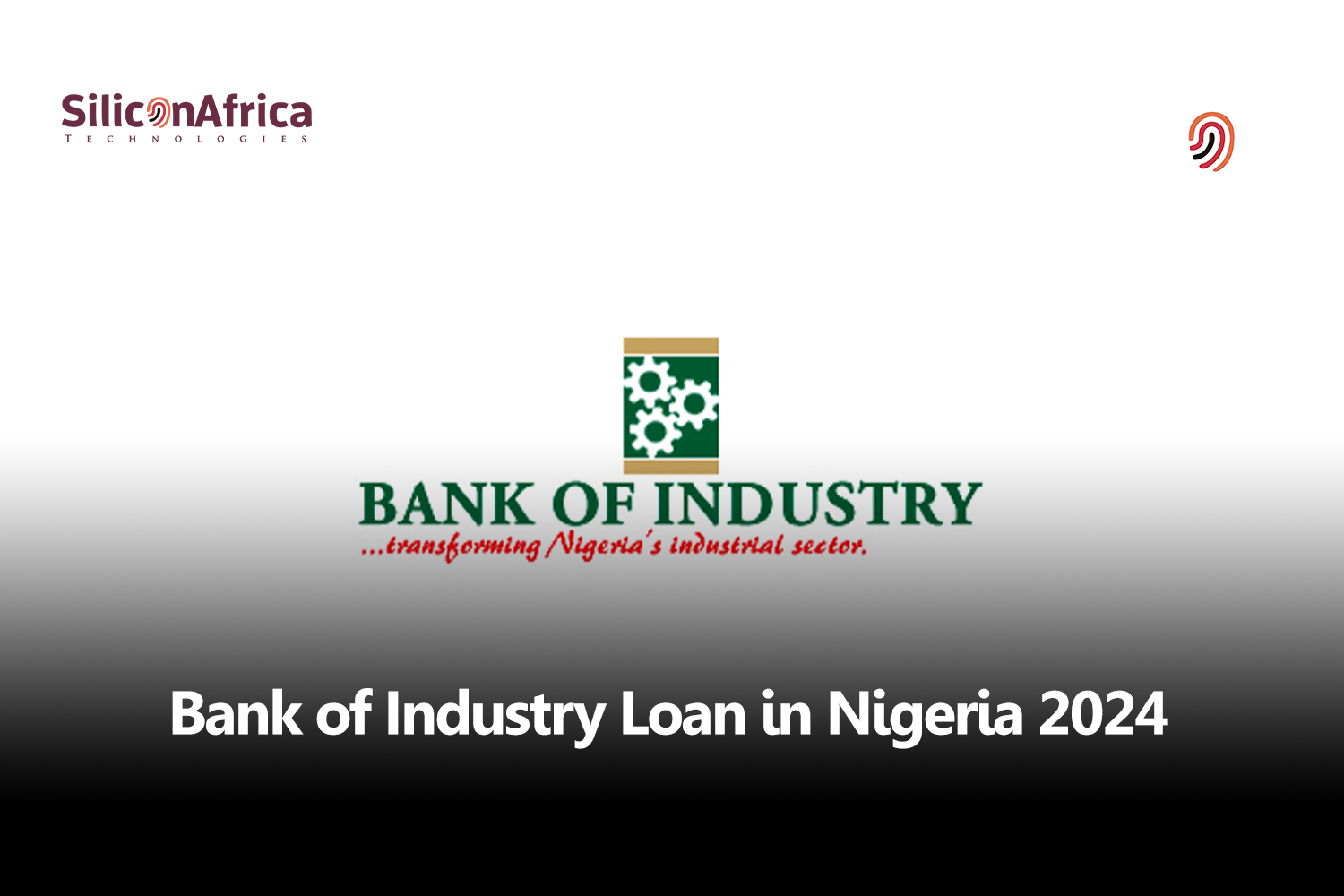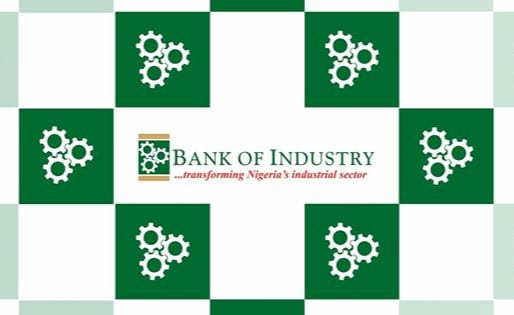Physical Address
60 Ekwema Cres, Layout 460281, Imo
Physical Address
60 Ekwema Cres, Layout 460281, Imo

2024 started on a good note, with the Federal government collaborating with the bank of industry to provide an astonishing N75 billion loan program! The loan program was specifically for Micro, Small and Medium Enterprises (MSMEs).
This commitment not only underscores the bank’s crucial function in facilitating industrial advancement but also highlights its strategic importance in achieving Nigeria’s broader economic goals.
By providing access to essential capital, the Bank of Industry continues to empower a diverse array of businesses, propelling them towards innovation and greater productivity in an increasingly competitive market.
In this post, we’ll be reviewing the Bank of Industry loan in Nigeria, how to apply, interest rates, and the requirements!
The Bank of Industry (BOI) is Nigeria’s oldest and largest development finance institution, established in 1964. It operates as a parastatal under the Federal Ministry of Industry, Trade, and Investment.
The primary objective of the BOI is to promote industrialization and economic growth in Nigeria by providing financial and business support services to various sectors of the economy.
Understanding the interest rates for Bank of Industry (BOI) loans in Nigeria is extremely important for potential borrowers, especially those in the small and medium-sized enterprise (SME) sector, as well as larger industrial ventures seeking financial assistance for growth and expansion.
The Bank of Industry primarily targets sectors that are considered pivotal for economic development, including manufacturing, agro-processing, and high-value services.
The goal is not only to promote the establishment of new industries but also to enhance the productivity and competitiveness of existing enterprises.
As of 2024, the BOI offers relatively competitive interest rates, which are generally lower than those of commercial banks.
The interest rates usually range from 5-10% and can also depend on several factors, including the loan amount, the repayment period, the specific sector the loan is targeting, and the perceived risk associated with the business.
Small and medium enterprises can especially benefit from lower rates, as the BOI aims to foster small-scale industrialization across the country. The rates for SMEs are designed to be affordable to encourage entrepreneurship and job creation.
Read also: Best Loan Apps with Low Interest Rate in Nigeria
Before applying for a loan, customers must open an account with the Bank of Industry, receiving a customer identification number upon completion.
To open an account, the following documents are required:
Schedule of shareholders signed by the company secretary for new customers, or confirmation of earlier submissions for returning customers.
Once the account is opened, the loan application process can begin with the submission of the following documents:
A formal request on company letterhead and a fully completed loan application form.
A feasibility study report detailing the technology and manufacturing processes.
Quotations or proforma invoices for machinery, equipment, and raw materials.
Either a bank guarantee (with an intent letter including risk management approval) or a legal mortgage supported by a photocopy of the property title, a valuation report from a BOI-accredited valuer, and a lease agreement if applicable.
Drafts of any technical, management, machinery supply, or joint venture agreements.
Three years’ audited financial accounts or a recent management account for existing businesses, or a statement of affairs for new businesses.
Upon loan approval, the following steps and documents are required for loan disbursement:
Submission of the signed loan offer letter by a director and company secretary or two directors.
Read also: Payday Loan: How to Apply and Access

Securing a loan from the Bank of Industry (BOI) in Nigeria is a strategic step for businesses aiming to expand their operations or increase their manufacturing capabilities. Here’s a step-by-step guide on how to apply for a BOI loan:
Before applying, ensure your business falls within the sectors supported by the BOI, which primarily include manufacturing, agro-processing, and creative industries, among others. The business must be duly registered and meet other sector-specific guidelines.
Gather all required documents, which typically include:
The BOI offers various loan products tailored to different industries and purposes. Check the specific requirements for the loan product that suits your business needs on the BOI website or by contacting a BOI office.
Loan applications can be initiated online through the BOI’s official website or by visiting a local BOI office. Complete the application form accurately and attach all required documentation. The precision and detail in your application and supporting documents significantly influence the approval process.
Once submitted, the BOI will review your application. This process may involve:
If your application is successful, the BOI will issue a letter of offer outlining the terms and conditions of the loan. Upon acceptance of the offer and fulfillment of any stipulated conditions (such as providing additional security if required), the loan will be disbursed according to the agreed schedule. This might be in phases, depending on the nature of the project being financed.
Adhere strictly to the repayment schedule as agreed in the loan terms. Timely repayment not only avoids penalties but also builds your credit standing for future financial dealings.
Read also: Kuda Bank Loan: Application, Qualifications and Requirements
Like any financing option, there are pros and cons associated with BOI loans that should be considered:
Compared to commercial banks, BOI offers more competitive interest rates that can significantly reduce the cost of borrowing for businesses.
The BOI provides a variety of loan products specifically designed to support different sectors such as manufacturing, agro-processing, and creative industries, allowing for more targeted and effective financial solutions.
BOI loans often come with longer repayment terms, which can be advantageous for startups and businesses that need more time to become profitable.
The BOI not only finances businesses but also offers advisory services, training, and support to help businesses plan and execute their growth strategies effectively.
The BOI focuses on promoting Nigerian businesses, thereby supporting local industries and helping to reduce the country’s dependence on imports.
BOI can provide substantial funding that might not be readily available through other financial institutions, especially for large projects that require significant capital outlay.
Read also: Moniepoint Commemorates IWD with Call for Applications into 4th Edition of Women in Tech Programme
The criteria for qualifying for a BOI loan can be strict, requiring businesses to meet various conditions related to business registration, tax compliance, and sector-specific stipulations.
The process of applying for a BOI loan can be lengthy and complex, involving detailed business plans, feasibility studies, and sometimes collateral, which can be daunting for small business owners.
Most BOI loans require substantial collateral, which can be a barrier for businesses that do not have sufficient assets to offer as security.
The time from application to disbursement can be lengthy due to the thorough review process, which can be a disadvantage for businesses that need quick access to funds.
While this can be a pro for businesses within those sectors, it is a con for businesses outside of the focus areas, as they may find it difficult to secure funding from BOI.
As with many government-backed institutions, navigating the bureaucracy and red tape can be challenging and time-consuming.
Read also: How to Know if Your Capfin Loan has Been Approved
BOI provides various financial instruments, including loans, equity, and guarantees, to support industrial projects, small and medium-sized enterprises (SMEs), and strategic sectors such as manufacturing, agriculture, and technology.
Entrepreneurs, SMEs, large industrial enterprises, cooperatives, and industry associations operating in sectors targeted by BOI for economic development and job creation.
Generally applicants must have a viable business plan, be registered with relevant authorities, demonstrate good credit history, and provide collateral where necessary.
Interest rates for BOI loans is about 5-10%.
If your loan application is approved, you will receive a letter of offer outlining the terms and conditions of the loan. Upon acceptance and fulfillment of any stipulated conditions, funds will be disbursed according to the agreed schedule.
The Bank of Industry stands as a beacon of hope and opportunity in Nigeria’s journey towards industrialization and economic prosperity.
Through strategic financing, capacity-building initiatives, and advocacy for conducive policies, the BOI empowers businesses, drives job creation, and paves the way for inclusive growth across diverse sectors.
If you found this piece useful, kindly drop a nice comment. Also visit and follow us on X @SiliconAfriTech for access to other useful contents